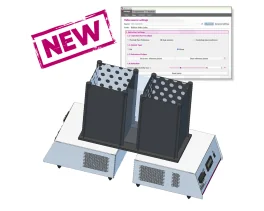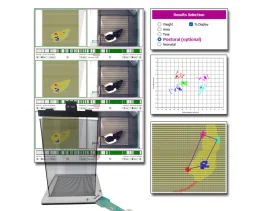Authors
Z Abbasi, MMG Seno, M FereidoniÊ
Lab
Department of Biology, Faculty of Science, Ferdowsi University of Mashhad, Mashhad, Iran
Journal
Journal of Molecular Neuroscience
Abstract
Brain insulin system dysfunction has been proposed as a key player in the pathogenesis of sporadic AlzheimerÕs disease (sAD). Given this fact, an adult rat model for sAD has been developed by intracerebroventricular injection of a subdiabetogenic streptozotocin dosage (icv-STZ). A low dose of icv-STZ in adult rats leads to a subclinical model of AlzheimerÕs disease. According to the brain developmental origin for sAD occurrence, the present study evaluated the effect of neonatal injection of icv-STZ on the development and progression of AlzheimerÕs disease later in the adult animals treated with a low dose of icv-STZ. Although no alteration was observed in the rats receiving an adult low dose of icv-STZ, these animals displayed cognitive deficits if they were also treated neonatally with icv-STZ. These impairments were associated with altered gene expression of insulin receptor, tau and choline acetyltransferase, along with increased astrocyte and dark neuron densities in the hippocampus. This study highlights neonatal brain insulin system dysfunction in the programming of brain insulin signaling sensitivity and provides more evidence for the developmental origin of sAD.
BIOSEB Instruments Used
Rotarod (BX-ROD),Aron Test or Four Plates Test (LE830)
Keywords/Topics
Maladie d'Alzheimer
Source :

 Douleur - Allodynie/Hyperalgésie Thermique
Douleur - Allodynie/Hyperalgésie Thermique Douleur - Spontanée - Déficit de Posture
Douleur - Spontanée - Déficit de Posture Douleur - Allodynie/Hyperalgésie Mécanique
Douleur - Allodynie/Hyperalgésie Mécanique Apprentissage/Mémoire - Attention - Addiction
Apprentissage/Mémoire - Attention - Addiction Physiologie & Recherche Respiratoire
Physiologie & Recherche Respiratoire




































 Douleur
Douleur Système Nerveux Central (SNC)
Système Nerveux Central (SNC)  Neurodégénérescence
Neurodégénérescence Système sensoriel
Système sensoriel Système moteur
Système moteur Troubles de l'humeur
Troubles de l'humeur Autres pathologies
Autres pathologies Système musculaire
Système musculaire Articulations
Articulations Métabolisme
Métabolisme Thématiques transversales
Thématiques transversales Congrès & Meetings
Congrès & Meetings 